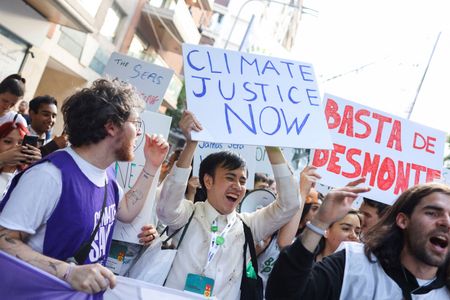By Juliette Portala
(Reuters) – Over 330 businesses on Wednesday urged world leaders to force large companies to assess and disclose their impact on nature by 2030, ahead of the COP15 global talks on biodiversity in December.
Signatories of the COP15 Business Statement, which include GSK, H&M Group and Nestle and which have combined annual revenues of more than $1.5 trillion, said the world needed to move past voluntary reporting rules.
“Improving the health of our planet requires bold, decisive action from policymakers and businesses. Some progress has been made, but it’s not enough,” Rebecca Marmot, chief sustainability officer at consumer goods company Unilever, said.
While regulators have pushed for more rigorous reporting on the companies’ environmental impact and efforts to battle climate change, broader impact on nature and biodiversity has not yet been subject to similar scrutiny.
The COP15 talks in Montreal will see countries try to agree a new Global Biodiversity Framework to combat the crisis that threatens over one million plant and animal species with extinction.
Currently, about 17% of the world’s land is protected, according to a 2021 report by the World Economic Forum, and just 7% of the global ocean is under some sort of conservation scheme.
“Assessment and disclosure are an essential first step to generate action, but it will only have an impact if it is made mandatory,” the 330 businesses said in their statement.
Vice-Chairman of Roche Holdings Andre Hoffmann said “nature recovery is within our grasp, provided we all act now”, while the joint statement “shows the extensive support from major businesses for an ambitious global deal for nature”.
Unilever, for instance, said it had committed to a deforestation-free supply chain by 2023, implying that its palm oil, paper and board, tea, soy and cocoa will not come from areas where natural ecosystems have been converted into farmland.
So far, though, rules are largely voluntary, meaning many corporations do not report, or do so in a patchy way that can make it hard for investors and other stakeholders to compare and assess their impact on the planet and hold them to account.
“Without this information, we are flying blind into extinction,” Eva Zabey, executive director at global coalition Business for Nature, said.
(Reporting by Juliette Portala, editing by Simon Jessop and Tomasz Janowski)

